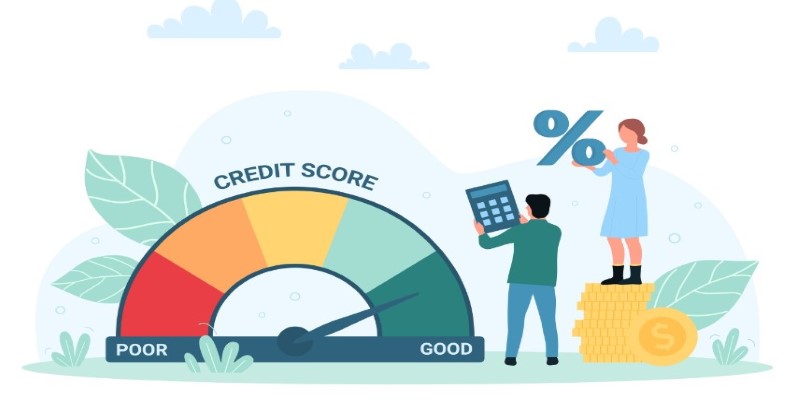In today's financial landscape, good credit is more than just a number; it is a powerful tool that can significantly impact your life. A strong credit score opens doors to various financial opportunities, affecting everything from loan approvals to insurance premiums.

As we navigate through 2024, understanding the benefits of maintaining good credit is essential for anyone looking to achieve financial stability and growth. In this article, we'll explore the many advantages of good credit, including its influence on borrowing costs, housing opportunities, and overall financial health.
Understanding Good Credit
Good credit is generally defined by a credit score of 700 or higher on a scale of 300 to 850. Several factors, including payment history, credit utilization, length of credit history, types of credit accounts, and recent inquiries influence your credit score. Each of these elements plays a crucial role in how lenders view your creditworthiness. A higher score indicates to lenders that you are a responsible borrower, which can lead to better terms and rates on loans and credit products.
But why should you care about your credit score? The truth is, good credit affects many aspects of your life, from securing a mortgage to getting the best rates on car loans. It can also impact your ability to rent an apartment or even get a job, as some employers check credit reports as part of their hiring process. By taking the time to understand and improve your credit score, you can open up a world of financial opportunities.
Your Credit Score and You: The Hidden Benefits of Good Credit
Your credit score plays a crucial role in your financial journey, influencing everything from loan approvals to rental applications. Discover the hidden benefits of maintaining good credit and how it can unlock new opportunities for a brighter financial future.
Lower Interest Rates on Loans
One of the most significant benefits of maintaining good credit is the ability to secure loans at lower interest rates. Lenders view borrowers with high credit scores as low risk, which means youll likely receive better terms on loans. A difference of just 1% in interest rates can save you thousands over the life of a loan. For instance, a 3% rate on a $200,000 mortgage could save you over $60,000 compared to a 4% rate.
Better Loan Terms

Good credit also translates to better loan terms. Lenders may offer you more flexible repayment options, lower fees, and larger loan amounts. This flexibility can be crucial when making significant purchases, such as buying a home or a car. With good credit, you can negotiate better deals that align with your financial goals.
Increased Chances of Approval
Having good credit increases your chances of being approved for credit. Lenders prefer to work with borrowers who demonstrate responsible financial behavior. A higher credit score signals to lenders that you are reliable, making it easier to secure loans and credit cards. This is especially important in competitive markets, where many applicants vie for the same financing.
Improved Rental Opportunities
Good credit is also vital for renting a home. Many landlords conduct credit checks during the application process. A solid credit score makes you a more appealing tenant, increasing your chances of securing your desired rental property. Conversely, poor credit can lead to higher security deposits or outright denials, making the rental process more challenging.
Access to Premium Credit Cards
Having good credit opens the door to premium credit cards that offer rewards like cashback and travel points. Many of these cards come with perks such as travel insurance and extended warranties. With a good credit score, you can choose cards that align with your spending habits, maximizing your rewards and savings.
Better Insurance Rates
Good credit can lower your insurance premiums. Many insurers consider credit scores when determining rates. Those with good credit typically pay lower premiums, as insurers view them as less likely to file claims. The difference can be significant, leading to substantial savings over time.
Easier Approval for Utility Services
Many providers check your credit score when setting up utility services. A good credit history can simplify this process, often allowing you to avoid large deposits typically required for those with poor credit. This convenience can make transitioning to a new home easier and more affordable.
Greater Financial Flexibility

Good credit provides greater financial flexibility. When unexpected expenses arise, having good credit means you can access credit cards or personal loans to navigate those tough times. This financial cushion can alleviate stress and help you allocate funds toward your financial goals, like retirement savings or emergency funds.
Enhanced Job Opportunities
In todays job market, employers increasingly check credit histories during the hiring process. A good credit score can be an asset, demonstrating reliability and financial responsibility. This can positively influence your career trajectory, particularly in roles that require financial acumen.
Peace of Mind
Perhaps the most intangible benefit of good credit is the peace of mind it brings. With a good credit score, you can feel secure in your financial decisions, knowing you have access to credit when you need it. This sense of financial security allows you to focus on other important aspects of your life, reducing stress and fostering confidence.
Conclusion
In summary, the benefits of maintaining good credit are numerous and far-reaching. From securing lower interest rates and better loan terms to improving your chances of renting a home and enhancing your job prospects, a good credit score is a key asset in todays financial landscape. By prioritizing your credit health, you can set yourself on a path toward financial freedom and success.
As we move through 2024, embracing good credit as a vital component of your financial strategy will empower you to navigate lifes challenges and pursue your goals with confidence.







